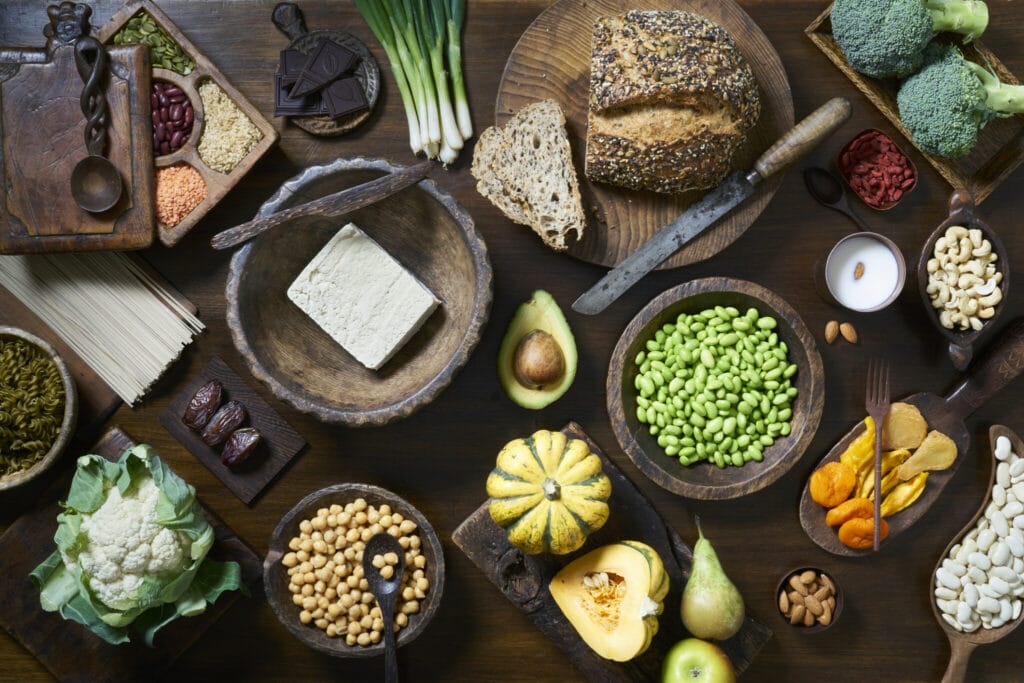By Corina Tan
The words ‘vegan’ and ‘plant-based’ are very often used interchangeably but they don’t necessarily mean the same thing. These terms have become very popular where recent lifestyle trends are concerned, and google searches for both vegan and plant-based have increased over the past 5 years, suggesting that people are more interested in these diets now more than ever.
With the rise in demand comes the rise in supply as well, as we are increasingly seeing stores carrying a large variety of foods catered to vegan and plant-based diets. These food variations also fall in line with the idea of consuming whole foods and staying away from processed foods that are genetically modified. Non-GMO (Non -Genetically Modified Organisms) is another popular term used and seen on food labels to indicate that you are consuming food that is as close to what nature intended.
While vegan and plant-based can differ in some areas, they often overlap since they both focus on constructing a healthy and sustainable diet. They are both rich in antioxidants and fibre, protect against obesity, type 2 diabetes, heart disease and even cancer. As followers of these diets consume very little to no red meat, they gain many health benefits compared to regular meat-eaters. So, is there a distinction between them?

A vegan diet basically excludes all animal products and even extends to a lifestyle beyond food. People who follow a vegan diet consume no meat, poultry, eggs, dairy, seafood, including honey, gelatine and collagen. Vegans don’t use products sourced from or tested on animals, they avoid household products that are derived from animal ingredients and they don’t wear clothing made with fur, leather, wool, silk or cashmere.
Several other types of vegetarians are defined as:
- Ovo-vegetarians – people who eat eggs.
- Lacto-vegetarians – people who eat dairy.
- Lacto-ovo-vegetarians – people who eat both eggs and dairy.
- Pescatarian – people who eat seafood, but no meat or poultry.
While there is some room for flexibility as seen in these variations, vegetarians, on the whole, do not eat meat and poultry.
A plant-based diet, on the other hand, may mean that some animal products can be included and meat, poultry and seafood may be consumed once or twice a week. This alone makes this a very attractive choice especially when people don’t fall neatly into being 100 per cent vegan. Plant-based eating is better accepted because of its flexibility particularly if you are not ready to stop eating animal products altogether. This is likely the cause for this diet’s growing popularity and the reason why it has gone mainstream.
The choice of selecting the kind of diet you prefer or one that suits your individual lifestyle is aplenty, however, it is important that when planning to start one that you first focus on what you can eat, rather than what you need to avoid. This will go a long way toward making the diet feel less restrictive and enable you to commit to any lifestyle changes you are making. Healthy food choices should remain the top priority, whether or not you choose to define what kind of diet you ultimately decide to follow.


